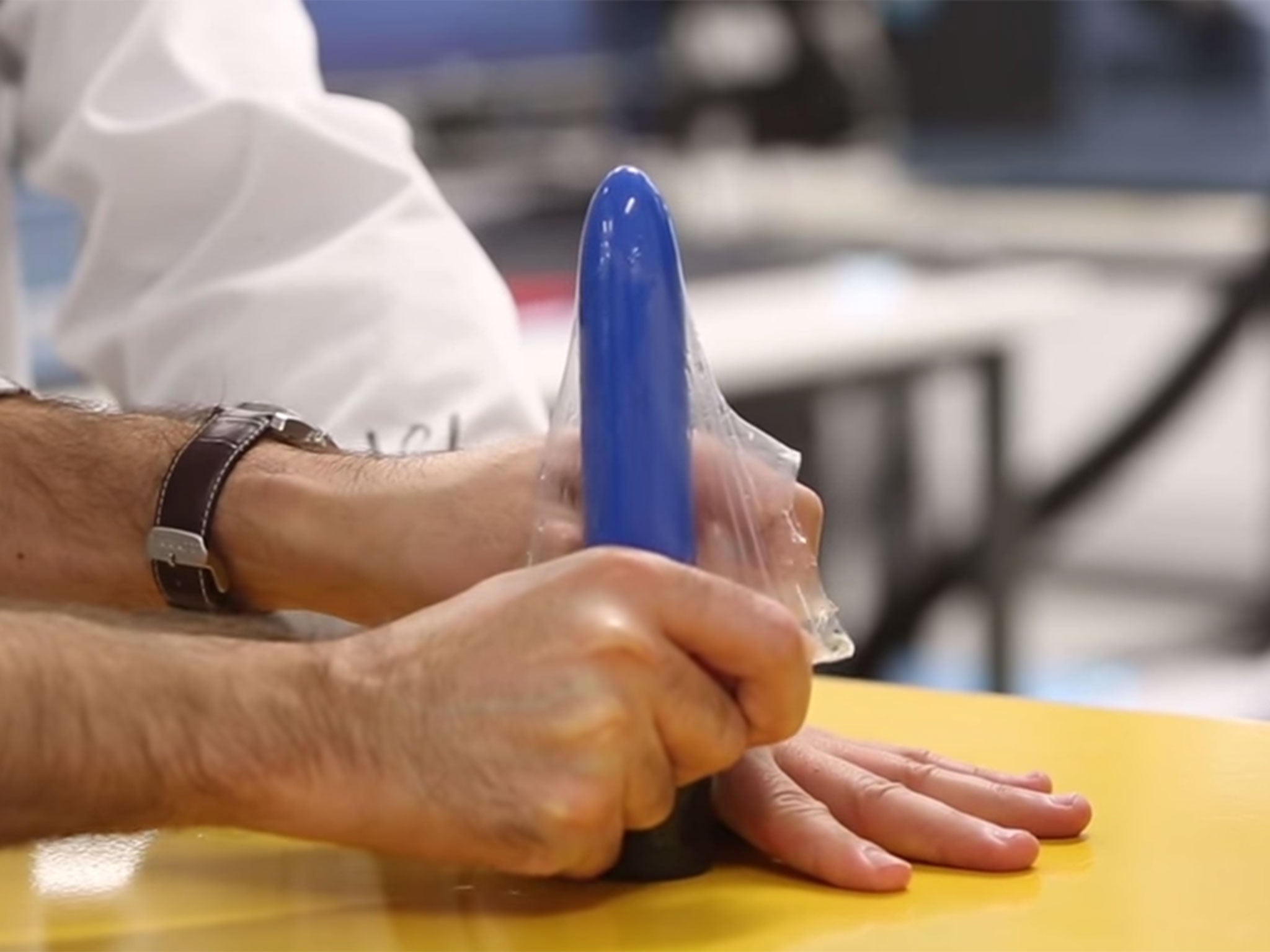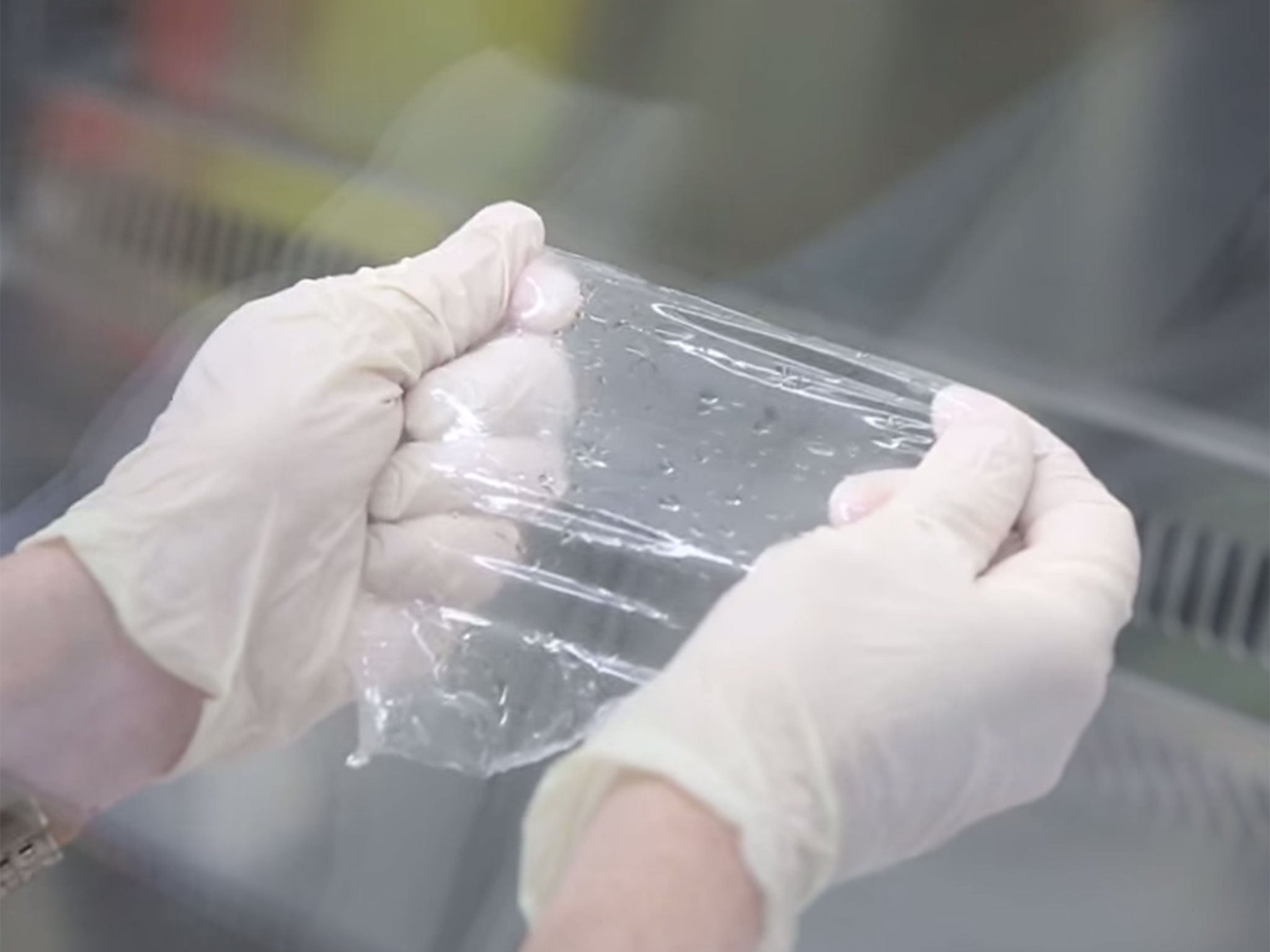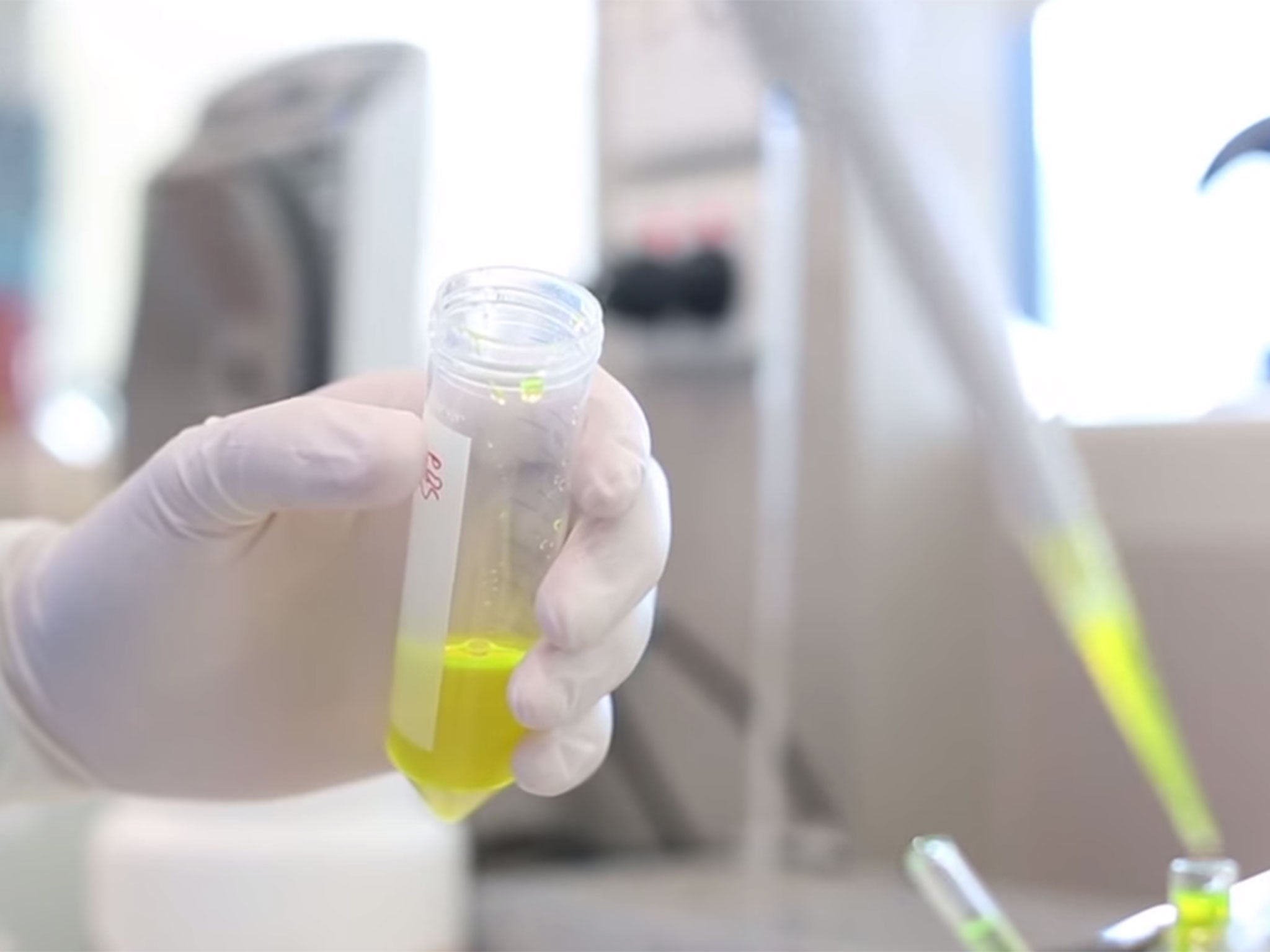The condom of the future? Scientists developing latex replacement that self-lubricates, delivers Viagra and feels better than nothing at all
A team from the University of Wollongong is among 52 tasked with removing the stigma that condoms make sex less enjoyable

A group of scientists in Australia is developing a series of condoms which it claims could feel even better than wearing nothing at all.
Tasked by Bill Gates to come up with the “next generation condom”, the team at the University of Wollongong (UOW) have been experimenting with hydrogel materials which they say have a range of benefits over latex.
Ultra-strong and flexible, hydrogels have been around for decades, according to Science Alert – but lead materials scientist Robert Gorkin says they are ideal to be converted for use as condoms because they can be engineered to have different properties.
Imagine a condom that self-lubricates, delivers its own small dose of Viagra, biodegrades in the long term or even conducts electricity and responds to stimulation.
“Our original idea was just to try to prove that an original material could replace latex,” Gorkin told ScienceAlert.

“We had an idea that these new materials would have the same properties as rubber with a nicer feel, but we weren't sure if they had the right properties for a condom.”
The team received one of 52 grants on offer from the Bill and Melinda Gates Foundation, which called on scientists to help get around the fact that people don’t like to use condoms.
The Foundation says that despite condoms being cheap, easy to manufacture, easy to distribute, and available globally, the “stigma” of decreased pleasure can prevent their use.

It offered initial funding of $100,000 per project for the design of a new, stigma-free condom that could “lead to substantial benefits for global health, both in terms of reducing the incidence of unplanned pregnancies and in prevention of infection with HIV or other STIs”.
Nine months on, and the team at UOW is looking to prove that their material is the right choice to replace latex in the condom of the future.
The next step will be biometric testing, so we don’t just have to take the scientists’ word on how the hydrogel condoms perform. Gorkin said: “We’ll be able to look at brain activity to see whether it really feels better than latex.”
“If you make them so pleasurable that people can't wait to put them on, then more people will use them, and we can hopefully stop the spread of disease. It's as simple as that.”
Join our commenting forum
Join thought-provoking conversations, follow other Independent readers and see their replies
Comments
Bookmark popover
Removed from bookmarks